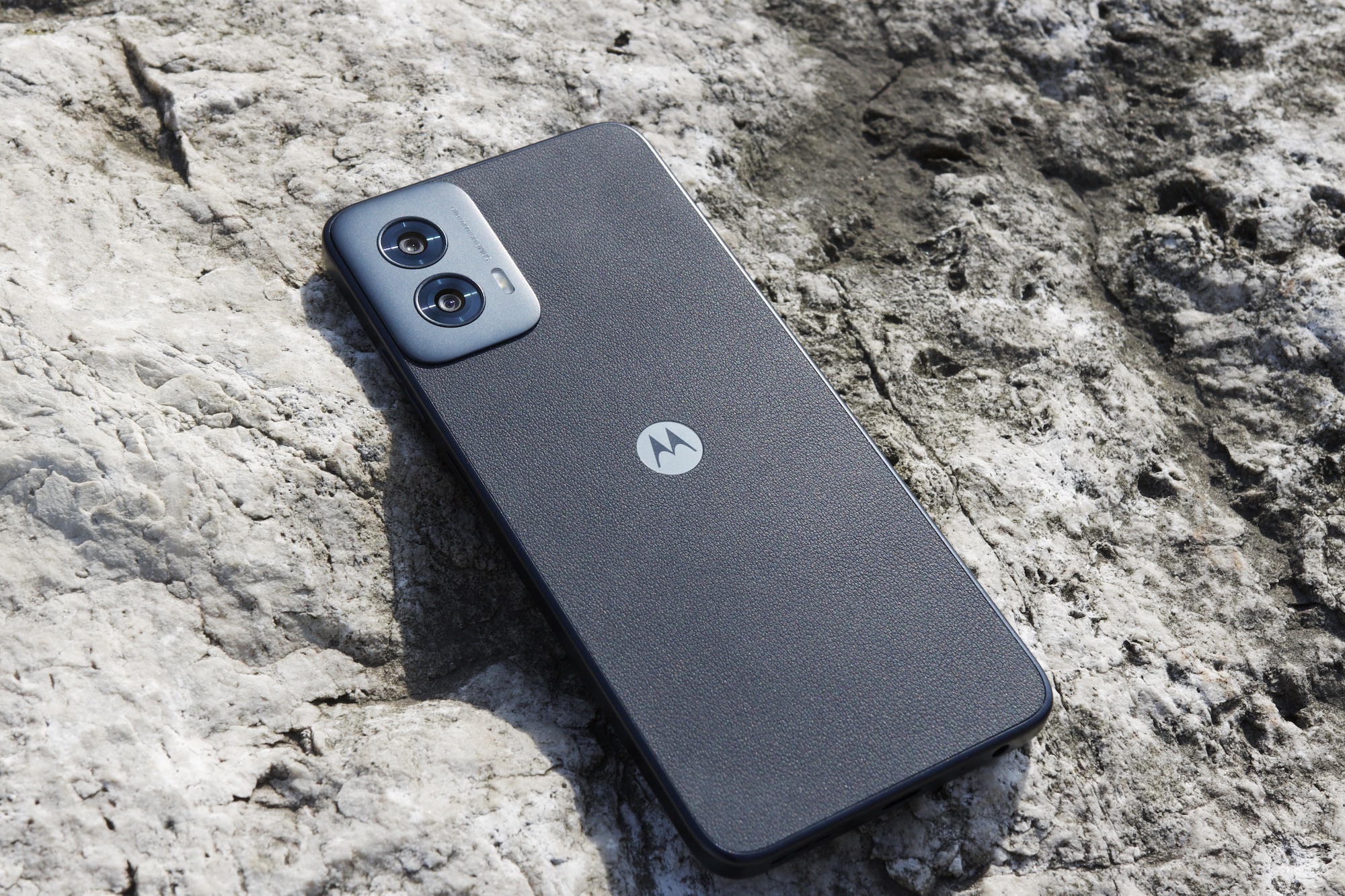The U.S. smartphone market is a well-known entity in 2024. Apple dominates the flagship space with the iPhone, Samsung’s Galaxy S handsets are a reliable force every year, and Google’s Pixel phones continue improving. But what about budget phones? There are some decent choices from Google, Motorola, and OnePlus, but your options are limited.
It’s a trusty, if somewhat unexciting, swath of smartphones, especially when you get a glimpse at what’s happening in other parts of the world. On a recent trip to India with MediaTek to see the company’s presence in the Indian tech market firsthand, I was given the Lava Agni 3 — a new smartphone release from the India-based company Lava.
The Lava Agni 3 is one of the newest smartphone releases in India. It has surprisingly solid specs, a truly unusual design, and gives you all of that at an unbelievably good price. For all those reasons and more, it’s unlike any other phone I’ve used this year, and I’d like to tell you why.
Yes, that’s a screen on the back
 Joe Maring / Digital Trends
Joe Maring / Digital TrendsFirst and foremost, yes — that is a screen on the back of the Agni 3 next to the cameras. It’s not the first smartphone with a rear-mounted display, but it is the first one I’ve ever used, and it’s been quite an experience.
It’s a 1.74-inch AMOLED screen that works very similarly to a smartwatch. You swipe up to view your notifications, swipe down to adjust the screen brightness, and swipe right/left to view the handful of apps you can use on the display. These include:
- Camera
- Media player
- Pedometer
- Recorder
- Stopwatch
- Alarm
- Timer
Some of these are pretty handy. Having a camera viewfinder to take selfies with the 50-megapixel primary camera is great. It’s also convenient to set a timer from the rear display. However, other aspects are a bit wonky. If I can create timers and control a stopwatch from the rear screen, why can’t I set an alarm? Why can I only view existing ones? I’m not sure, but that’s what Lava has decided.
You get additional controls from the main Settings app. You can enable or disable the “Cute Pets” option (which features an adorable dog running around the screen), and you can even enable an always-on display for the screen — ensuring you always see the time, date, and remaining battery life.
The rear display isn’t a game-changing feature, and you’d be fair to say it’s a bit gimmicky. But I also kind of adore it. It’s quirky, silly, and a feature I’d wager most folks haven’t used before. It’s not the reason to buy the Lava Agni 3, but it certainly adds to its charm.
Solid specs, impressive hardware
 Joe Maring / Digital Trends
Joe Maring / Digital TrendsAdding to the Lava Agni 3’s impressive qualities is its spec sheet. Specs alone don’t make or break a phone, but they are an essential part of it, and that’s something Lava clearly understands.
The front of the phone is encompassed by a 6.78-inch curved AMOLED panel with a 1200 x 2652 resolution and a 120Hz refresh rate. It has good colors, is incredibly responsive, and gets decently bright, with a maximum brightness of 1200 nits.
Speaking of responsiveness, the MediaTek Dimensity 7300X chipset powering the phone is very capable. It’s the same chip found inside the CMF Phone 1, and similar to our experience with that phone, it’s been a fast and capable chipset for the Lava Agni 3. Rounding out the spec sheet are 8GB of RAM, 128GB or 256GB of storage, and a 5,000mAh battery with 66-watt wired charging (with an included charger in the box).
 The Lava Agni 3 comes with a case, a 66W charger, and a cable. Joe Maring / Digital Trends
The Lava Agni 3 comes with a case, a 66W charger, and a cable. Joe Maring / Digital TrendsThe hardware these specs are packed into feels far better than I expected. At 212 grams, the Agni 3 feels much more sturdy and dense than you typically see with phones this inexpensive. Paired with the matte glass back, smooth display curves, and tactile buttons, it all creates a hardware package I’d be happy with for a $400 or $500 smartphone.
And then there’s the cherry on top: The Action key. As the name suggests, it’s an unabashed knockoff of the iPhone’s Action button. However, Lava’s approach is better. Unlike the iPhone, which only lets you program the Action button to a single action/task, you get three customizable commands for the Action key on the Lava Agni 3 — including a single click, double click, and long press.
 The Action key (the top button) is fantastic on the Lava Agni 3. Joe Maring / Digital Trends
The Action key (the top button) is fantastic on the Lava Agni 3. Joe Maring / Digital TrendsYou can assign each action to a particular task (like taking a screenshot or turning on the flashlight) or open any app installed on the Lava 3. It’s so customizable and so much fun and is exactly what the Action button on the iPhone should have been. Well done, Lava.
The price makes it special
 Joe Maring / Digital Trends
Joe Maring / Digital TrendsThe Lava Agni 3 has a lot going for it. It has the strange, but fun secondary screen, very competent specs, great hardware, and it even outdoes Apple with its take on the Action button. Surely, that all comes with a decently sized price tag — right?
Amazingly, not at all. The Lava Agni 3 retails for 25,999 rupees, which is about $308. It’s also discounted on Amazon right now to just 22,499 rupees, or about $266. What kind of smartphone can you get in the U.S. for that kind of money? Nothing as impressive as the Agni 3, that’s for sure.
 The Moto G Power 5G (2024) Joe Maring / Digital Trends
The Moto G Power 5G (2024) Joe Maring / Digital TrendsThe closest competitor in terms of direct pricing is the $300 Moto G Power 5G (2024). It has a nice design and long battery life, but it also has a significantly worse display and a much less capable chipset. It’s also promised just one major Android update, compared to three years of updates for the Agni 3.
The Samsung Galaxy A35 is a much better choice, offering a good primary camera, four years of updates, and a modern design. However, it also has very slow charging speeds, a weaker chipset, and a much higher starting price of $400. There are more comparable options out there, such as the CMF Phone 1, but they aren’t available in the U.S.
A glimpse at what we’re missing out on
 Joe Maring / Digital Trends
Joe Maring / Digital TrendsThis isn’t a review of the Lava Agni 3. I’ve not had time to evaluate the phone’s battery life, cameras, or long-term performance after weeks of use. But that’s also not why I wanted to write this. Instead, I wanted to highlight what we’re missing out on.
The U.S. and Indian smartphone markets couldn’t be more different. In the U.S., it’s commonplace to buy phones through carrier deals/contracts. A $1,000 phone quickly turns into one that costs $40/month — if not free when you add a line or trade in your old phone. This setup has conditioned us to care less and less about retail prices. Combined with overwhelming dominance from brands like Apple and Samsung, it’s created a market that’s less competitive and innovative than it once was.
This is not true in India. The Indian market is incredibly price-conscious. Not only do more people buy their phones outright, but there’s also extremely fierce competition, with over 200 unique smartphone models released in the country every year. With so many other phones to compete with and shoppers so much more sensitive to price, companies like Lava are forced to release competitive value-focused phones like the Agni 3.
The Lava Agni 3 isn’t a phone you or I can buy, and its existence won’t change or impact our budget smartphone options in the U.S. anytime soon. Still, it’s a great reminder of what else is out there. Living in a country dominated by expensive and iterative flagships like the iPhone 16 Pro and Galaxy S24 Ultra (as good as they may be), it’s refreshing to see how things are done differently in another part of the world. The Lava Agni 3 certainly opened up my eyes to it, and I hope it does the same for you.













)





 English (US) ·
English (US) ·